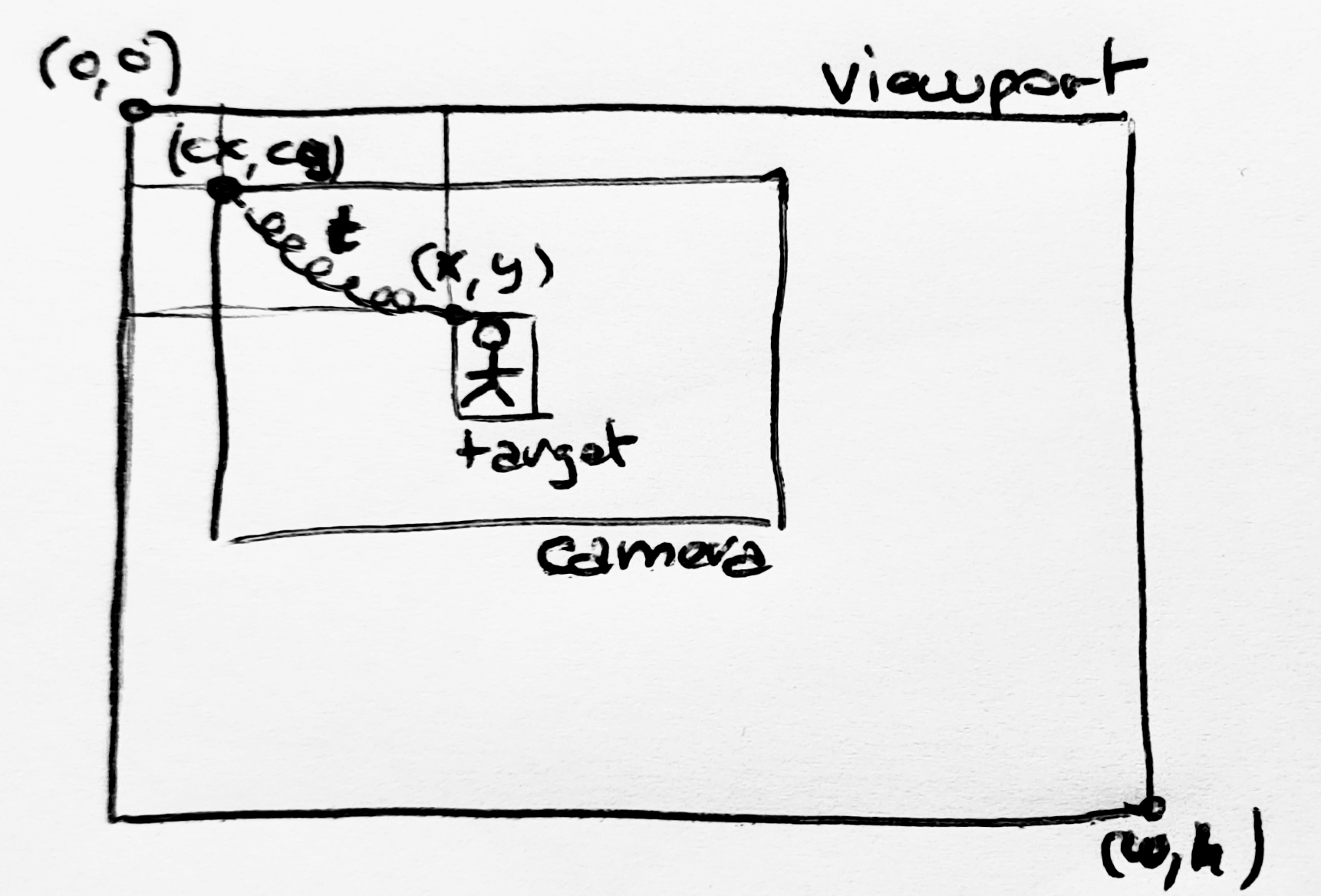fromClassToGame
A journey from a simple class to a game with the Java language https://mcgivrer.github.io/fromClassToGame/ , and open Hub https://www.openhub.net/p/fromClassToGame.
See through a Camera
In every game, there is a critic chapter about how the “camera” is managed. But what does this means exactly ?
The Camera is a virtual point of view, following the main character across a game level. The way the camera will follow the player is very important because the user experience about how the player feel the game is very important. And the first feeling of the player about a game is the behavior of this camera.
But how a camera is following a target ? Let’s have a diagram to explain that.

A Camera follows a target in a viewport
The target, the player, at (x,y), is targeted by the camera at (cx,cy) moving into the viewport having
with x height of (w,h). The t factor, visualized by s spring on the diagram symbolized the behavior of how the
camera will follow the camera, the t is a small delay applied to the camera moves, based on the target moves.
The simple math formula below explains how the t factor is used to compute the camera position:
Camera(position) += Target(position) + Target(size) - Camera(size)/2) x t x dt
And has we are in a time measured update process, see the GameObject#update(dt), we need to multiply the resulting
value by the elapsed time since previous call dt (as Delta Time)
the corresponding code would be :
class Camera extends GameObject {
private Dimension viewport;
private GameObject target;
private double t;
void update(long dt) {
x += target.x + target.w - (viewport.width * 0.5f - x) * t * dt;
y += target.y + target.h - (viewport.height * 0.5f - y) * t * dt;
}
}
Now we can add the Camera to the framework and reserve a dedicated processing to this kind of object in term or
rendering. yes, in this specific case, the Camera is not drawn as other object, it is simply moving the point of view
according to its own position.
Modifying the Render class
TODO modify the Render class
- Add a Camera point of view in the Render process
- Add a method to add a Camera
- Sort and filter objects to split Camera and others
Modify Scene and AbstractScene classes
TODO modify the Scene and the AbstractScene
- Add a method to add a camera to the Scene
- Add a list of Camera to the Scene
- Automatically add the Camera from the scene to the Render pipeline.
Adapt DemoScene class
TODO modify the DemoScene
- Add a Camera to the DemoScene